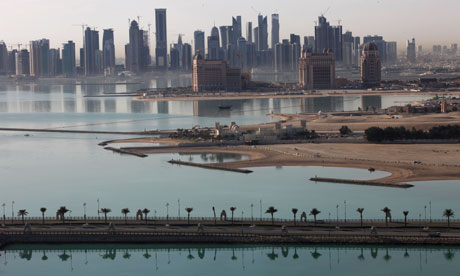US considers shifting climate negotiations away from UN track
Click here to read this story in full at The Guardian: http://www.guardian.co.uk/environment/2012/nov/16/us-considers-climate-negotiations-un

Since 1992, the United Nations Framework Convention on Climate Change (UNFCCC) has provided an umbrella for talks to curb global greenhouse gas emissions, and on 26 November, will host the COP18 Climate Summit in Qatar.
But it has been confirmed to EurActiv that Washington is increasingly looking to shift policy action to the MEF whose members account for some 85% of global emissions, and which the US views as a more comfortable venue for agreeing climate goals.
If the idea gains traction, it could demote the UNFCCC to a forum for discussing the monitoring, reporting and verification of emissions reductions projects, sources say.
Michael Starbæk Christensen, the deputy head of cabinet for EU Climate Commissioner Connie Hedegaard, said he expected the US to convene another MEF forum soon which could be fruitful for discussing raised climate ambitions.
"We need to broaden the group to work together on this and whether it is inside our outside the UNFCCC, by all means do it outside," he told a Green Party conference in the European Parliament on 15 November.
"Ideally we would like to see as much happening inside the UNFCCC as possible," he continued, "but if we can engage with the US in other forums, it is the action that counts".
Brussels sees the MEF as a complement - rather than an alternative - to the UNFCCC, and is mindful of giving the newly-elected President Obama time to finesse his climate agenda.
It would be considered a "provocation" if the US was to unilaterally leave the UNFCCC process itself, sources say, and could potentially split the world into rival climate blocks led by Washington and Beijing.
The MEF is a successor to the Major Economies Meetings set up by President Bush, and criticised by several governments for undermining the UN process.
Its participants include: Australia, Brazil, Canada, China, the European Union, France, Germany, India, Indonesia, Italy, Japan, Korea, Mexico, Russia, South Africa, the United Kingdom, and the United States...
Click here to continue read this story in full at The Guardian: http://www.guardian.co.uk/environment/2012/nov/16/us-considers-climate-negotiations-un
















































